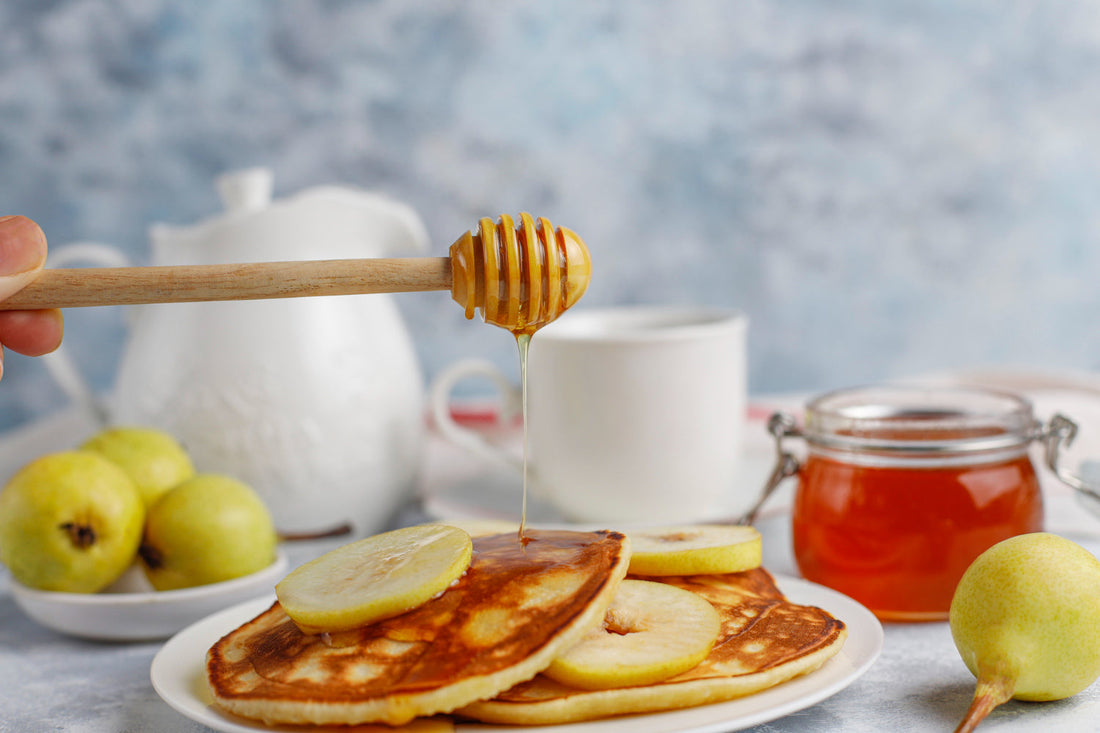In the modern pursuit of healthier sweeteners, you might have heard dietitians and healthcare professionals emphasizing the adverse effects of table sugar on our health. Sugar has been implicated in various health issues, and its impact extends beyond just weight gain. It affects the gut microbiome, disrupts blood sugar levels, and has been linked to an array of health concerns.
As someone passionate about health and wellness, it's my responsibility to delve into these complexities surrounding sweeteners and shed light on how choices like honey and maple syrup might offer a more beneficial alternative.
Understanding the Types of Sugar
Before we explore the potential advantages of honey and maple syrup, it's crucial to understand the intricacies of conventional sugar. Table sugar, scientifically identified as sucrose, undergoes a rigorous refining process, extracting it from sugar cane or sugar beets. This refining process not only strips away impurities but also eliminates the accompanying vitamins, minerals, and natural compounds present in the sources.
The refined form of sugar, often labelled as "empty calories," has been implicated in a myriad of health issues. Its high-calorie content contributes significantly to excessive calorie intake, a primary driver of obesity. The lack of nutritional value in table sugar means that it provides energy without the essential vitamins and minerals our bodies need to function optimally.
In essence, the refining process that transforms sugar cane or sugar beets into table sugar not only strips away its natural components but also contributes to health issues by promoting weight gain, insulin resistance, and cardiovascular problems. This underscores the importance of exploring alternative sweeteners, such as honey and maple syrup, which retain more of the original nutritional profile of their natural sources.
The Pitfalls of Added Sugars
In today's dietary landscape, added sugars are ubiquitous, hiding within processed foods and beverages. High fructose corn syrup, a common sweetener, has been associated with metabolic disorders, including insulin resistance and fatty liver disease. The excessive consumption of added sugars contributes to weight gain, disrupts metabolic processes, and poses a threat to overall health.
The Impact on Blood Sugar Levels and Cardiovascular Health
One of the primary concerns associated with sugar consumption is its influence on blood sugar levels and cardiovascular health. The refined nature of sucrose has been linked to insulin resistance, a precursor to type 2 diabetes. The rapid absorption of simple sugars can overwhelm the body's insulin response, leading to impaired glucose metabolism over time and ends in diabetes.
Further, the impact of table sugar extends beyond metabolic concerns, reaching into cardiovascular health. Excessive sugar consumption has been associated with an increased risk of heart disease. It can increase blood pressure, promote inflammation, and contribute to the development of atherosclerosis, a condition characterized by the accumulation of plaque in the arteries. Even it can cause complications related to blood clotting.
Honey and Maple Syrup as Natural Sweeteners
In the quest for alternatives, honey, and maple syrup emerge as more natural options. Honey, a product of bees collecting nectar from flowers, and real maple syrup, extracted from the sap of maple trees, both boast a spectrum of essential vitamins and minerals. These include vitamin B, antioxidants, and minerals like potassium and zinc, contributing additional health benefits compared to the nutrient-poor table sugar.
Understanding the Glycemic Index
An essential factor in assessing sweeteners is the glycemic index (GI), a measure of how quickly a food raises blood sugar levels. Table sugar has a high GI, causing rapid spikes and crashes in blood sugar levels. On the contrary, honey and pure maple syrup exhibit a lower glycemic index of 54, ensuring a more gradual absorption and mitigating the adverse effects associated with blood sugar fluctuations.
Health Benefits of Honey and Maple Syrup
Honey and pure maple syrup not only sweeten our dishes but also provide valuable nutritional content. Rich in antioxidants, these natural sweeteners contribute to overall well-being by combating oxidative stress. Additionally, honey and maple syrup offer antibacterial properties, aiding in immune system support. While moderation remains essential, incorporating these alternatives can be a flavorful and health-conscious choice.
Conclusion
In conclusion, opting for a tablespoon of maple syrup or honey over table sugar can be a strategic move for those seeking a healthier sweetening option. These natural sweeteners offer a range of nutrients while minimizing the negative impact on blood sugar levels. As a health and wellness enthusiast, I encourage you to make informed choices, limit your sugar intake, and savor the benefits of these delicious alternatives to cultivate a balanced and nourishing lifestyle.






